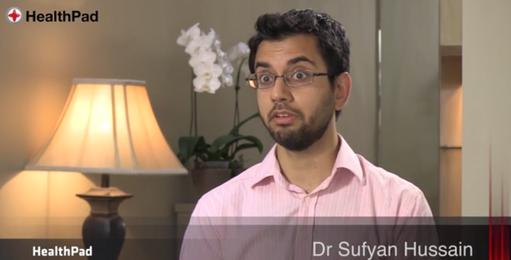Tag

Rajiv Dhir
Deputy Chief Pharmacist, Wandsworth Clinical Commissioning Group; Clinical Champion, Diabetes UKDirectory:
Expertise:
Rajiv Dhir is a pharmacist who works as Deputy Chief Pharmacist at Wandsworth Clinical Commissioning Group (CCG), London. He is also a Clinical Champion for Diabetes UK.
Since graduation from University of Brighton in 1993, he has held a variety of positions mainly in Primary Care. After completion of his pre-registration training at Boots the Chemists, he continued working there gaining more experience in different roles (relief pharmacist, store manager and Professional Development Pharmacist). In 1999, he completed his post-graduate diploma in Clininal Pharmacy and was awarded a distinction.
Rajiv has been a pharmacist for over 24 years. He started his career working in community pharmacy before working in various roles in primary care, before taking on a role as Deputy Chief Pharmacist at Wandsworth Clinical Commissioning Group. The main focus of this role is to maximise benefit and minimise risk associated with medicines, as well as making the best use of resources allocated for prescribing.
Rajiv has a specific interest in diabetes and has completed diploma level modules on diabetes in primary care at Kings College London. Being a member of the various local diabetes committees allows him to develop and shape policies to help patients and clinicians manage Type 2 diabetes. Recently he has been involved with working with GPs and nurses to overcome barriers to optimising treatment in patients with poorly controlled diabetes. The role involves engaging with healthcare professionals across all sectors, as well as with patients, to make a positive impact on patient care.
In his role as one of Diabetes UK Clinical Champions, Rajiv looks at prescribing in the frail and elderly population with Type 2 diabetes. The aim of the project is to reduce the risk of hypoglycaemia and treatment-related harm, for example fall-related fractures, and improve the quality of life for people with moderate or severe frailty.
view this profile

Roni Sharvanu Saha
Consultant in Acute Medicine, Diabetes and EndocrinologyDirectory:
Expertise:
Dr Roni Sharvanu Saha is a consultant in acute medicine, diabetes and endocrinology in the Acute Medical Unit at St George's Hospital, London.
view this profile

Sachin Patel
General PractitionerDirectory:
Expertise:
Dr Patel is a GP Principal in West Wandsworth. He looks after a large and diverse diabetic population in Putney & Roehampton and is the lead GP for diabetes at Mayfield Surgery.
He has completed post graduate training in diabetes and is the Clinical Diabetic lead for West Wandsworth on the clinical reference group for Wandsworth CCG.
view this profile
Directory:
Tags:

Neil Bamford
GP Principal and Diabetes Clinical Lead, Wandsworth Clinical Commissioning GroupDirectory:
Expertise:
Neil Bamford was born in Wandsworth and still works there as a GP, joining his father’s practice after a period researching eye disease at the Institute of Eye Health.
He has a MSc in Public Health and a Diploma in Primary Care Diabetes.
He has been diabetes clinical lead in Wandsworth since 2002, seeing diabetes care transformed by the implementation of the National Service Framework, the Quality and Outcomes Framework and the Health Care for London report. During this time the management of diabetes has stopped being a hospital speciality practised by an elite few and has become an area of primary care which, with adequate support from specialist clinicians, is available throughout general practice and integrated with local communities.
view this profile
Directory:
Tags:
Richard Lane, former President of DUK, and a patient diagnosed with T2DM suggest that the biggest challenge for diabetes care is actually engaging people who are either at risk of the condition or living with diabetes. Only once people are engaged do you stand a chance to raise their awareness of the disease, and encourage them to change their diets and lifestyles in order to slow the progression of the condition and even prevent it.
Directory:
Tags:

|
Structured educational courses to help people living with diabetes manage their condition are not working.
A few closed service providers dominate diabetes education in the UK, and according to the last National Diabetes Audit, less than 2% of the 3.8 million diagnosed with diabetes attend any form of structured education. The non-dramatic, insidious and chronic nature of diabetes masks the fact that it has become a global epidemic with the potential to overwhelm national health systems, if education can't halt its progress. Although advances in diabetes research are significant, the horizon for a cure is still distant. At this moment in time, the best option to halt the progression of diabetes is convenient, fast and effective education. |
|
|
Directory:
Tags:

|
In October 2014 Harvard professor Douglas Melton announced a breakthrough in the treatment of type-1 diabetes by creating stem cells that produce insulin.
Melton demonstrated that mice treated with transplanted pancreatic cells are still producing insulin months after being injected. Testing in primates is now underway at the University of Chicago, and clinical studies in humans should begin in just a few years. "Most patients are sick of hearing that something's just around the corner," says Melton, but he's convinced that his research represents a significant turning point in the fight against diabetes. Type-1 Type-1 diabetes, which usually occurs in children, is an autoimmune disease in which the body attacks its own beta cells of the pancreas and destroys their ability to make insulin. It's a devastating lifelong chronic condition, which affects some three million Americans and 400,000 English people. Treatment is daily insulin doses, a healthy diet and regular physical activity. |
|
|





